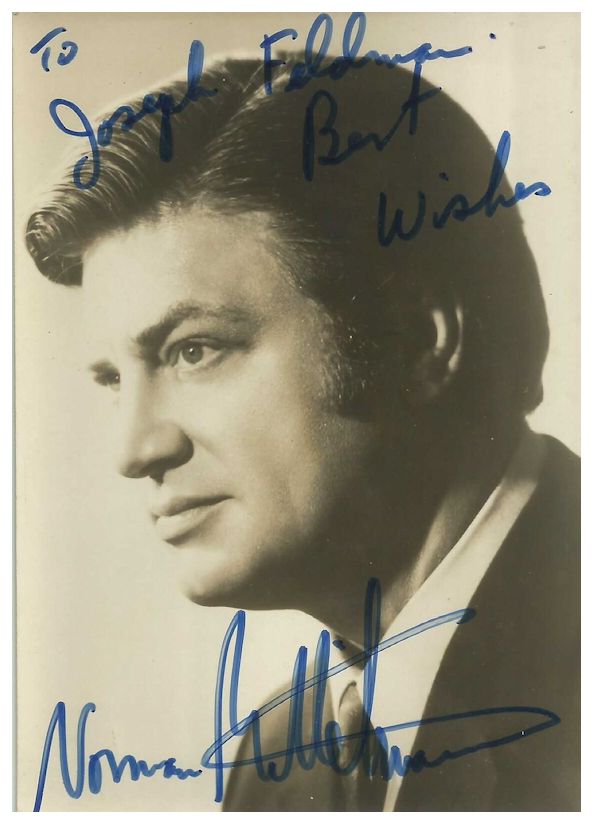

|
Norman Mittelmann (25 May 1932 – 17 March 2019) was a Canadian operatic baritone who had an active international opera career from the 1950s through the 1990s. A winner of the Metropolitan Opera National Council Auditions, he performed periodically at the Met from 1961 through 1984. Primarily active with opera houses in Europe, he was a resident artist at the Grillo-Theater in Essen, Germany (1959–1961), the Deutsche Oper am Rhein (1960–1964), and the Zürich Opera (1964–1982), in addition to appearing frequently with other opera houses internationally as a guest artist. His voice is preserved on several live complete opera recordings from the 1960s and 1970s. Born into a Jewish family in Winnipeg, Manitoba, Mittelmann graduated from St. John's High School in his native city. During high school he was a member of the Winnipeg All Star High School Football Team. He first studied singing with Canadian soprano Doris Lewis in Manitoba, before entering the Curtis Institute of Music in Philadelphia on a full scholarship in 1950 at the age of 18. At Curtis he was a pupil of Martial Singher, Vladimir Sokoloff, and Richard Bonelli. In a 1961 Opera News interview he credited Singher with establishing the core of his technique, and enabling him to be successful professionally. After completing his studies at Curtis in 1954, Mittelmann pursued graduate studies at the Music Academy of the West in Montecito, California in 1955 and 1956 where he was a pupil of Lotte Lehmann. He made his professional opera debut in Santa Barbara in 1956, portraying Count Almaviva in Mozart's The Marriage of Figaro and Harlequin in Richard Strauss's Ariadne auf Naxos in productions directed by Lehmann. That same year he performed in the United States premiere of Darius Milhaud's David at the Hollywood Bowl. In 1958 he portrayed Marcello in Giacomo Puccini's La bohème for his first opera appearance in Canada in a production mounted by the Canadian Opera Company (COC). He later returned to the COC in a critically lauded portrayal of the four villains (Lindorf, Coppelius, Dappertutto and Dr. Miracle) in Offenbach's The Tales of Hoffmann in 1967, a production both in Toronto's opera house and at Expo 67 in Montreal. In 1959 Mittelmann won the Metropolitan Opera National Council Auditions. However, he chose to delay his offered contract with the Met to pursue work in Europe. From 1959 until 1961 he was a principal artist at the Grillo-Theater in Essen, Germany. He made his debut at the Metropolitan Opera House as the Herald in Richard Wagner's Lohengrin on 28 October 1961; and continued to perform periodically at the Met through 1985. Other roles he portrayed at the Met included Amonasro in Aida, Don Carlo in La forza del destino, Donner in Das Rheingold, Faninal in Der Rosenkavalier, Gunther in Götterdämmerung, the High Priest in Samson et Dalila, Jochanaan in Salome, Kothner in Die Meistersinger von Nürnberg, Mandryka in Arabella, both Silvio and Tonio (in separate performances) in Pagliacci, and Valentin in Faust. His final appearance at the Met was on November 18, 1985 as Shaklovity in Modest Mussorgsky's Khovanshchina. Mittelmann was a resident artist at the Deutsche Oper am Rhein from 1960 through 1964. He left that position to join the roster of resident artists at the Zürich Opera through 1982. A frequent guest artist with opera houses internationally, he also performed leading roles with the Bavarian State Opera, the Berlin State Opera, the Lyric Opera of Chicago (debut as Ruprecht in Prokofiev’s The Fiery Angel in 1966), the Paris Opera, the Royal Opera, London (debut as Germont in La traviata in 1965), the Teatro Colón, and the Vienna State Opera. In 1970 he created the role of Daniel in the world premiere of Paul Burkhard’s Ein Stern geht auf aus Jaakob at the Hamburg State Opera. He performed in several productions with the San Francisco Opera from 1972 until 1979, appearing as Amonasro, Barnaba in La Gioconda, Germont, Nelusko in L'Africaine, and Rodrigo in Don Carlo. In 1983 he performed the role of Shishkov in the United States premiere of Leoš Janáček's From the House of the Dead with the New York Philharmonic. His final opera performance was in 1991, although he continued to work as a concert performer for several more years. Mittelmann lived in retirement in Palm Springs, California where he sold real estate and owned and operated a restaurant. |
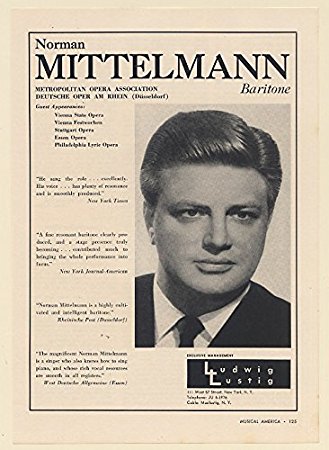
|
He studied in Florence with Titta Ruffo and Riccardo Stracciari and made his debut there in 1937, as Giorgio Germont in La traviata, and also sang at the premiere of Gian Francesco Malipiero's Antonio e Cleopatra, in 1938. He made his debut at the San Carlo in Naples, in 1939, and at the Teatro alla Scala in Milan, in 1940. He appeared in two legendary performances opposite Maria Callas, the first at the Maggio Musicale Fiorentino in 1951, as Montforte in I vespri siciliani, under Erich Kleiber, and on opening night of the 1952-53 season at La Scala, as Macbeth, under Victor de Sabata. He also appeared there in La bohème (with Giuseppe di Stefano, 1952), La favorite (1953), Faust (with Elisabeth Schwarzkopf, 1954), Don Carlos (with Callas, 1954), and, again, La bohème (conducted by Leonard Bernstein, 1955). After the war, he began an international career, appearing in Paris, Vienna, Prague, London, Mexico City, Rio de Janeiro, Chicago, San Francisco, etc. In 1946 and 1947, Mascherini appeared at the New York City Opera, in La bohème, La traviata (with Dorothy Kirsten), Pagliacci (as Silvio, later as Tonio), Rigoletto, Andrea Chénier, and Il barbiere di Siviglia. He made his debut at the Metropolitan Opera on 7 December 1949 as Marcello in Giacomo Puccini's La bohème with Bidu Sayão as Mimì, and Ferruccio Tagliavini as Rodolfo. He performed in several other roles at the Met during the 1949-1950 season, including Germont in La traviata (with Licia Albanese as Violetta and Jan Peerce as Alfredo), Lescaut in Manon Lescaut (with Richard Tucker as Des Grieux), Valentin in Faust (with di Stefano in the title role), and the title role in Rigoletto (with Erna Berger as Gilda). He also went on tour to South Africa in 1951. A fine singing-actor with a powerful voice and solid technique, he
taught in Florence after retiring from the stage. [Vis-à-vis the photo shown at right, see my interview with
Nicola Rossi
Lemeni (at left, wearing the crown)]
* * *
* *
Hermann Juch (1908-1995) was a lawyer, but he also studied singing, piano, and composition. Between 1945-55, he was General Manager of the Vienna State Opera. Then from 1956-64, he was the manager of the Deutschen Opera am Rhein Düsseldorf-Duisberg, and from 1964-75 he headed the Opera in Zurich. Nello Santi (1931-2020) was General Music Director in Zurich from 1958-69, and returned as a guest to conduct there for many years. He was succeeded as GMD by Ferdinand Leitner from 1969-84. |
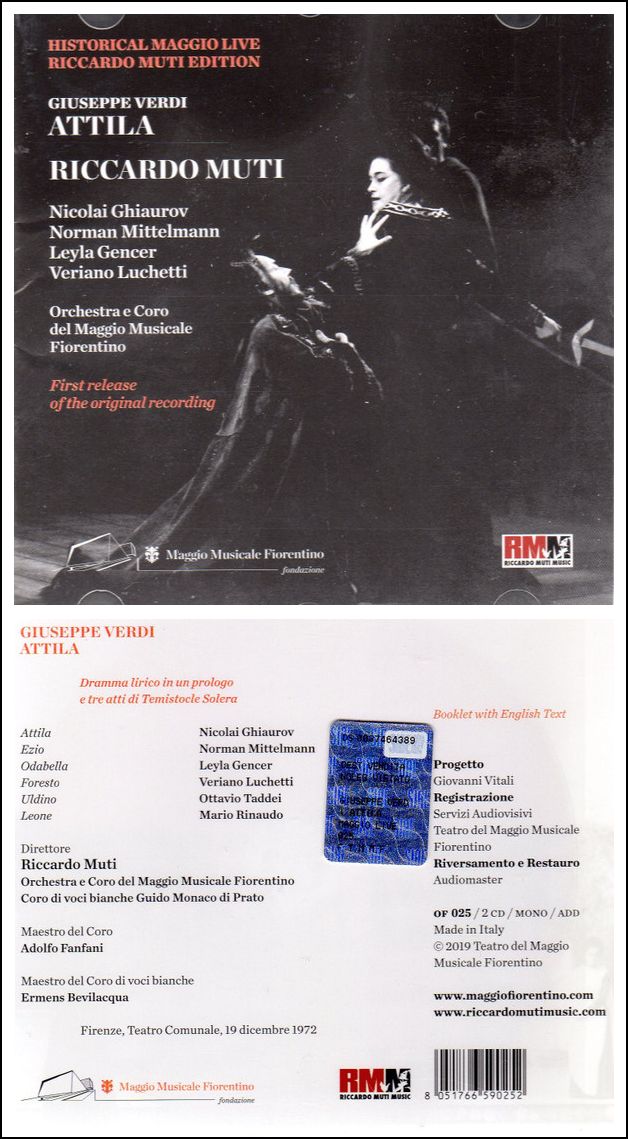
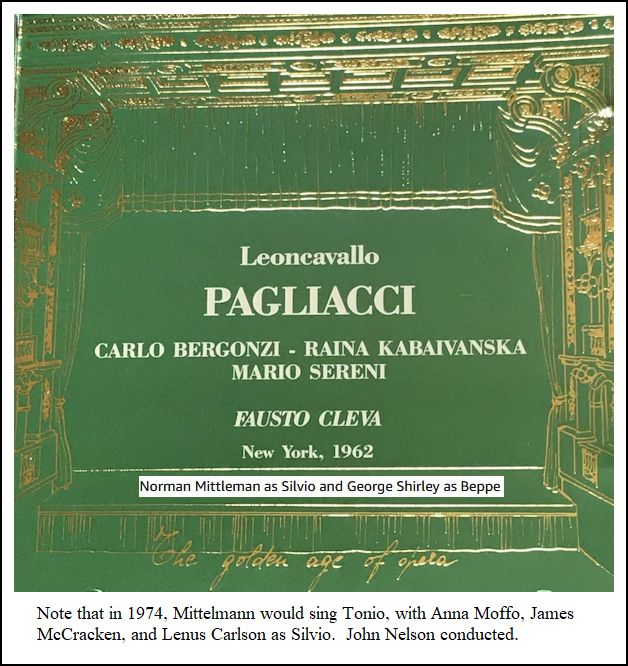

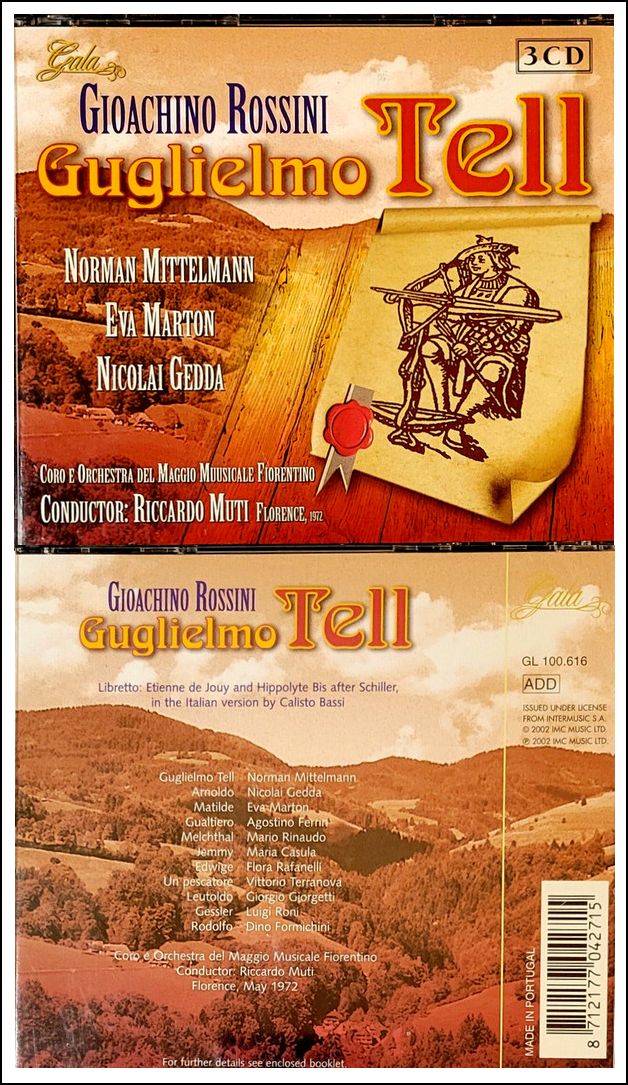
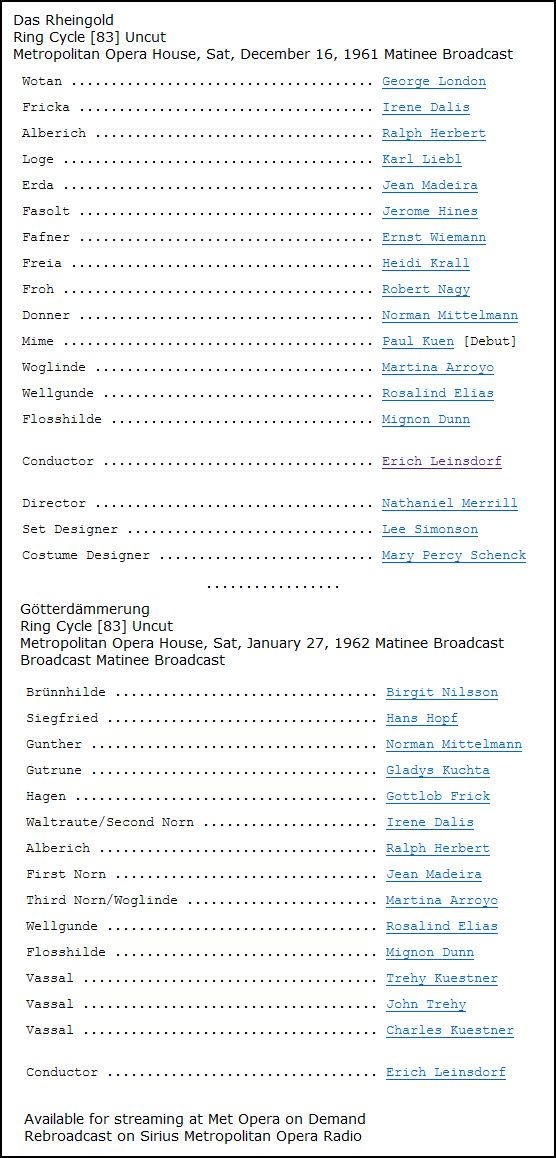
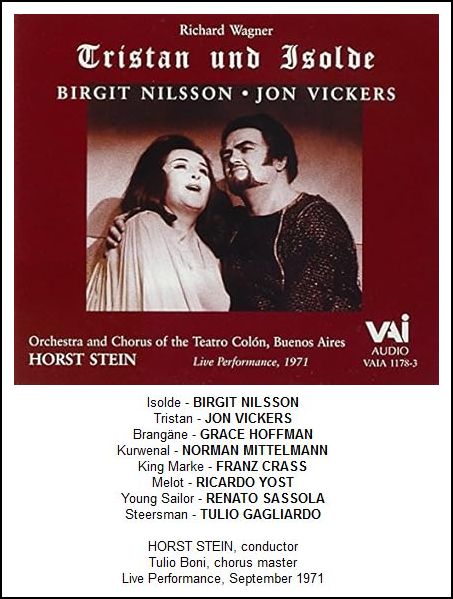
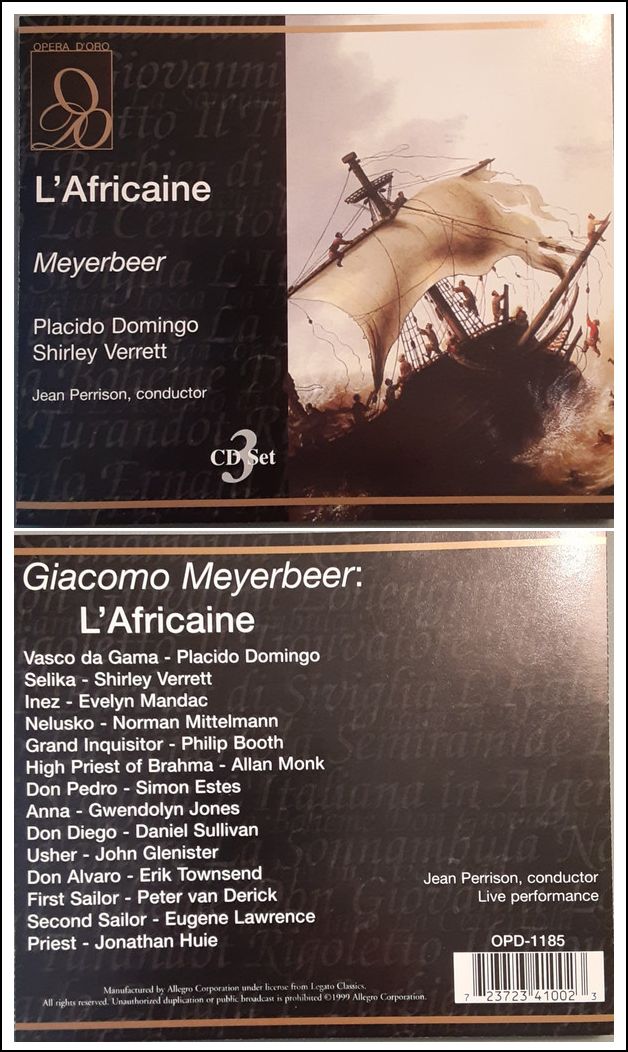
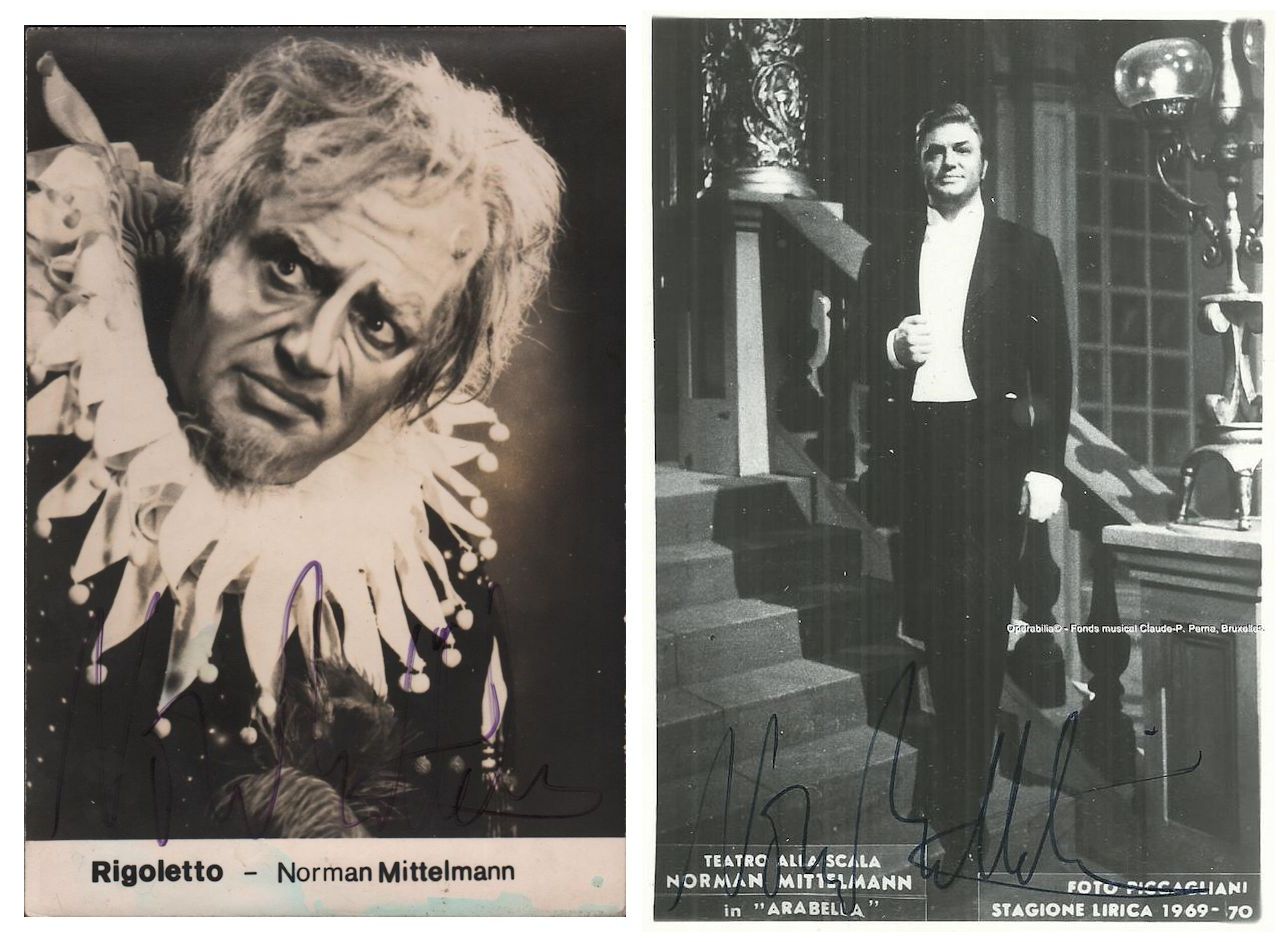
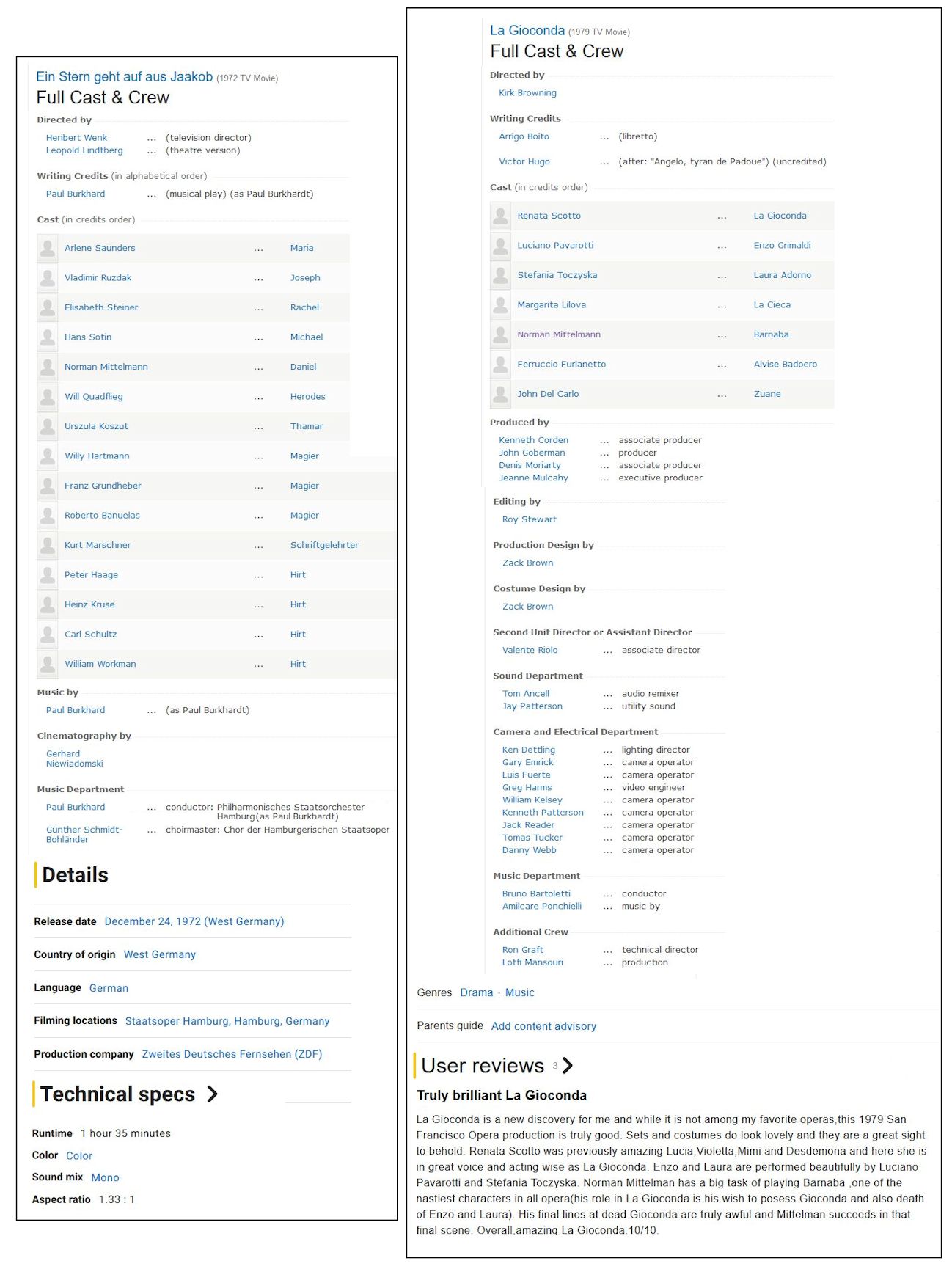
© 1982 Bruce Duffie
This conversation was recorded in Chicago on September 23, 1982. This transcription was made in 2023, and posted on this website at that time. My thanks to British soprano Una Barry for her help in preparing this website presentation.
To see a full list (with links) of interviews which have been transcribed and posted on this website, click here. To read my thoughts on editing these interviews for print, as well as a few other interesting observations, click here.
Award - winning broadcaster Bruce Duffie was with WNIB, Classical 97 in Chicago from 1975 until its final moment as a classical station in February of 2001. His interviews have also appeared in various magazines and journals since 1980, and he now continues his broadcast series on WNUR-FM, as well as on Contemporary Classical Internet Radio.
You are invited to visit his website for more information about his work, including selected transcripts of other interviews, plus a full list of his guests. He would also like to call your attention to the photos and information about his grandfather, who was a pioneer in the automotive field more than a century ago. You may also send him E-Mail with comments, questions and suggestions.